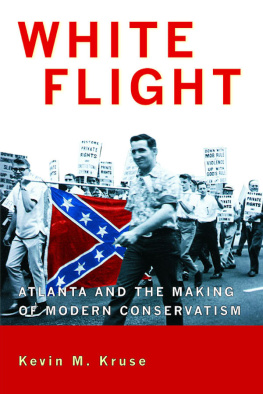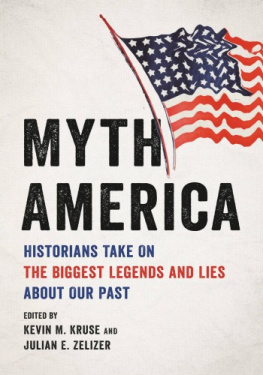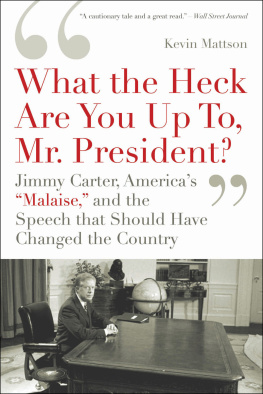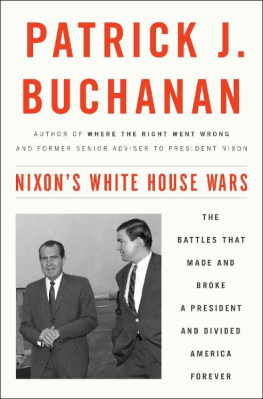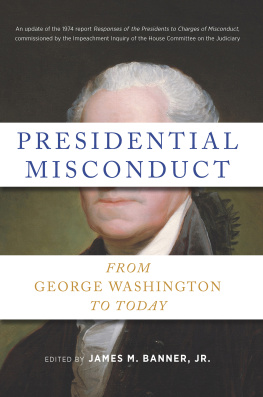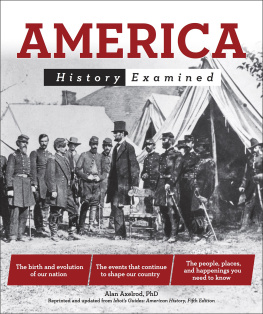Contents
Guide
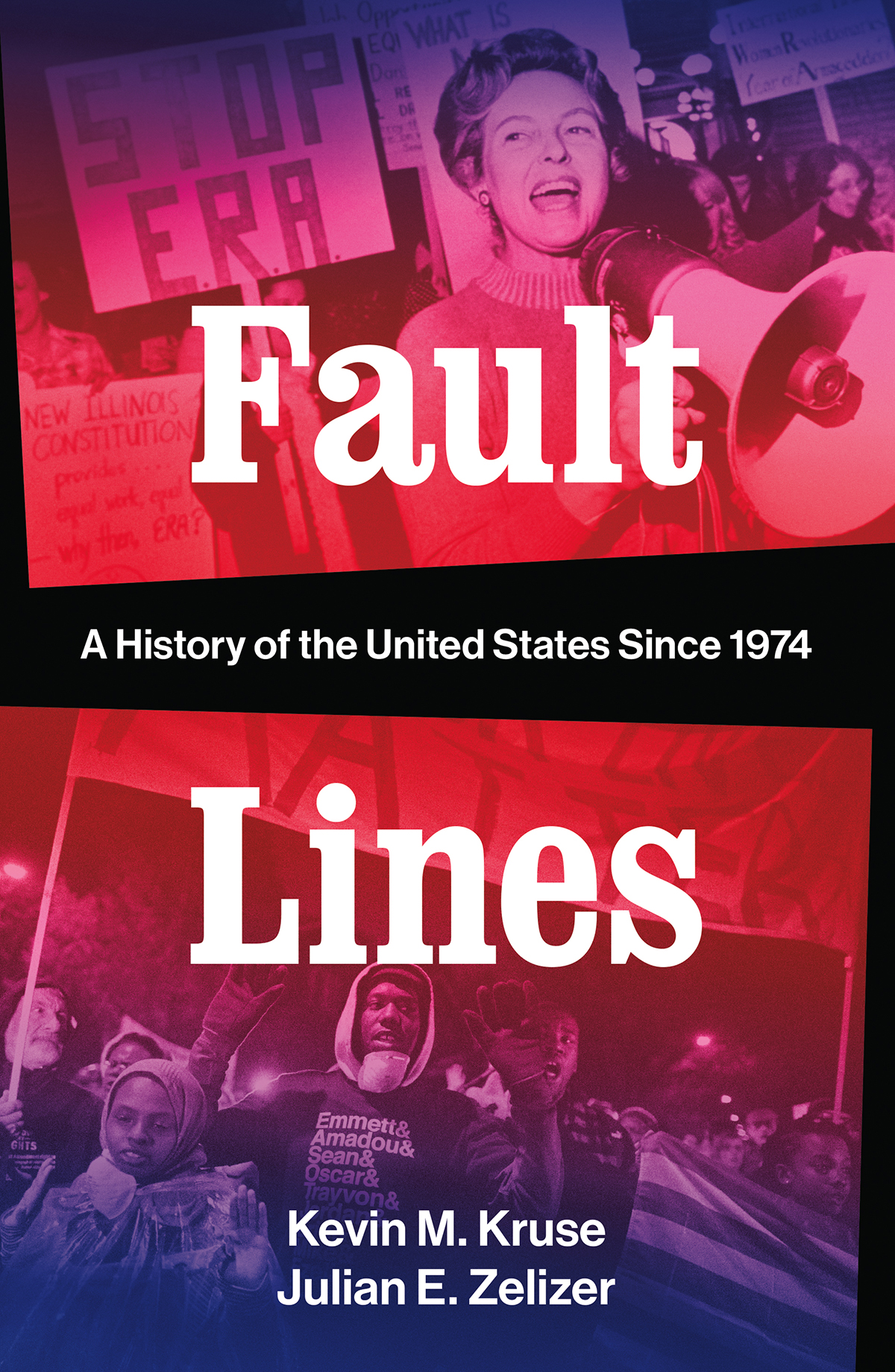
FURTHER PRAISE FOR FAULT LINES
For Kevin M. Kruse and Julian E. Zelizer, Donald Trump is not some singular figure. He is the result of trends decades in the making. Sober, clearly written, and profoundly insightful. This is a must-read for anyone who wants to understand the forces of the last half century that have brought the country to the brink of disaster.
Eddie S. Glaude Jr. , James S. McDonnell Distinguished University Professor at Princeton University and author of Democracy in Black: How Race Still Enslaves the American Soul
With commanding knowledge and an eye for the telling detail, Kruse and Zelizer address the pressing historical question of how we arrived in todays polarized America. The answer, they show, is not simple, but they explain its various dimensions in a cogent and fair-minded fashion. A splendid book.
Fredrik Logevall , professor of history and international affairs at Harvard University and author of Embers of War: The Fall of an Empire and the Making of Americas Vietnam
Fault Lines is Kruse and Zelizer at their very best, deftly guiding us through four decades of polarized politics, economic disruption, and cultural transformation in a lively and moving historical narrative. An indispensable resource for understanding Americas recent past, contextualizing its fractious present, and healing its divisions in the future.
Margaret OMara , professor of history at University of Washington and author of Pivotal Tuesdays: Four Elections That Shaped the Twentieth Century
In this sweeping, readable account of Americas recent past, Kruse and Zelizer powerfully connect politicized evangelicalism and the seemingly endless culture wars, the rise of deregulation and free-market economics to deepening inequality, and the corrosive effects of the 24-7 news cycle and the internet to partisan, religious, racial, and sexual divisions to show how we have become a bitterly polarized nation. This is an indispensable history of our time.
Thomas J. Sugrue , professor of social and cultural analysis and history at New York University and author of Sweet Land of Liberty: The Forgotten Struggle for Civil Rights in the North
Fault Lines provides a crisply written and insightful history of the political twists and turns of recent American history. Kruse and Zelizer chart the profound transformations in media, culture, and the economy, providing readers with a critical framework for thinking about the present dilemmas the country faces.
Kim Phillips-Fein , associate professor in the Gallatin School at New York University and author of Fear City: New Yorks Fiscal Crisis and the Rise of Austerity Politics
BOOKS BY KEVIN M. KRUSE
O NE N ATION U NDER G OD :
H OW C ORPORATE A MERICA I NVENTED C HRISTIAN A MERICA
W HITE F LIGHT :
A TLANTA AND THE M AKING OF M ODERN C ONSERVATISM
BOOKS BY JULIAN E. ZELIZER
T HE F IERCE U RGENCY OF N OW :
L YNDON J OHNSON , C ONGRESS , AND THE
B ATTLE FOR THE G REAT S OCIETY
A RSENAL OF D EMOCRACY :
T HE P OLITICS OF N ATIONAL S ECURITY FROM
W ORLD W AR II TO THE W AR ON T ERRORISM

Copyright 2019 by Kevin M. Kruse and Julian E. Zelizer
All rights reserved
First Edition
For information about permission to reproduce selections from this book, write to Permissions, W. W. Norton & Company, Inc., 500 Fifth Avenue, New York, NY 10110
For information about special discounts for bulk purchases, please contact W. W. Norton Special Sales at or 800-233-4830
Book design by Lovedog Studio
Production manager: Julia Druskin
The Library of Congress has cataloged the printed edition as follows: is available
ISBN 978-0-393-08866-3
ISBN 978-0-393-63454-9 (ebk.)
W. W. Norton & Company, Inc., 500 Fifth Avenue, New York, N.Y. 10110 www.wwnorton.com
W. W. Norton & Company Ltd., 15 Carlisle Street, London W1D 3BS
To our families
for all their support, encouragement, and love
CONTENTS
Fault Lines
W HEN P RESIDENT B ARACK O BAMA DELIVERED HIS FAREWELL address to the nation in January 2017, much of the country still seemed in shock over the election two months before. In one of the most surprising results in American political history, former secretary of state Hillary Clinton, an experienced public servant with a lengthy resume, had lost the presidential race to real estate developer and reality television star Donald J. Trump. Defying the polls and the pundits, the political novice had pulled off a stunning upset. In a sign of the unlikely nature of his win, Trump pieced together an improbable patchwork of states to secure his victory in the electoral college, even though he lost the popular vote by a margin of nearly three million ballots nationwide.
To many observers, Trumps stunning victory revealed a nation deeply divided. More troubling, the president-elect had come to power largely by widening those divisions. In a bruising bare-knuckle campaign, he had thrown aside the traditional niceties of American politics and repeatedly taunted both his own party rivals in the race for the Republican nomination and then his general election opponent as well. Most ominously, Trump had singled out large segments of American society for attack. He characterized Mexican immigrants as rapists and murderers and proposed barring Muslims from entering the country; he mocked a disabled reporter in a campaign appearance and was even caught on tape bragging about sexually assaulting women. Aside from the standard election-night rhetoric about uniting the nation, the incoming president showed little inclination to bring the country together. With control of the White House, both houses of Congress, and thirty-three state governors mansions, the Republican Party now had the most dominant presence in American politics since just before the Great Depression. As a result, the president-elect and his allies saw little need to reach out to the opposition party in any effort to find common ground.
Accordingly, in his farewell address, President Obama felt forced to address the tension himself. In keeping with past practices, the departing chief executive spoke about the many accomplishments of his administration. Refusing to abandon the hopes that he had expressed in his famous keynote speech to the 2004 Democratic National Convention, Obama listed the many ways in which the basic foundation of the country remained strong and, in areas like the overall economy, stronger than it had been before.
Yet, Obama warned, Americas democracy faced a number of serious threats. The first, he noted, was the growing economic inequality that separated the rich from the poor and left the middle class in a state of insecure anxiety. He pointed in particular to the laid off factory worker, the waitress or health care worker whos just barely getting by and struggling to pay the bills. Convinced that the game is fixed against them, that their government only serves the interests of the powerful. Thats a recipe for more cynicism and polarization in our politics.
The second threat to democracy, racial division, was more difficult for Obama to address. His election as the first African American president had initially raised hopes about the dawn of a postracial America. Obamas ascendancy, one observer insisted, had been a seismic event that sent the troubled history of race relations crashing into apparent obsolescence. But racial divisionsbroadly defined and deeply rooted in the nations historyhad never really gone away. Racial minorities still lived in a country in which many key institutions didnt afford the same benefits to them that they did to whites. The criminal justice system, in particular, seemed to have pronounced biases. Even though the previous years had seen a steady stream of videos showing unarmed African Americans being killed by police officers in suspect circumstances, much of the nation still refused to recognize the problem, much less show a willingness to confront it.


